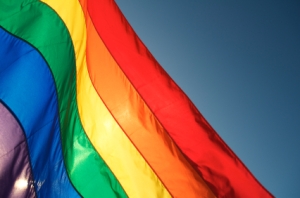Human Rights Watch has reported that the Budapest Metropolitan Court decided on February 1 “to allow an extended route for a gay pride march” planned by the Rainbow Mission Foundation for June 18, 2011. The extended route will bring the 2011 Budapest Gay Pride March past the Hungarian parliament building. The Budapest police had denied the extension earlier this month. Amnesty International had previously voiced concerns that denial of the extension would be a violation of the rights to freedom of expression, freedom of assembly and non-discrimination under the ICCPR and ECHR. The Hungarian decision is reflective of recent developments in Europe (see below).
decided on February 1 “to allow an extended route for a gay pride march” planned by the Rainbow Mission Foundation for June 18, 2011. The extended route will bring the 2011 Budapest Gay Pride March past the Hungarian parliament building. The Budapest police had denied the extension earlier this month. Amnesty International had previously voiced concerns that denial of the extension would be a violation of the rights to freedom of expression, freedom of assembly and non-discrimination under the ICCPR and ECHR. The Hungarian decision is reflective of recent developments in Europe (see below).
Human Rights Watch reports:
Rainbow Mission Foundation made a formal request to the police in September 2010 to hold the gay pride march in June 2011. Because the police did not deny the request within two days, it was automatically approved under national law. In February, the organizers of the event decided to extend the route to end at Parliament Square, but the police denied their request. The court refuted the police claims that the extended route of the march would unduly obstruct traffic.
In 2008, the police had denied a permit for a gay pride march on similar grounds but withdrew its objections following a letter from 15 LGBT organizations and the rejection by Gábor Demszky, the Budapest mayor at that time, of the claim that the parade would unduly obstruct traffic. Approximately 450 lesbians, gays, and supporters gathered in the city center for the event.
During the march, though, several LGBT people were subjected to physical and verbal abuse, and crowds of counter-demonstrators threw explosive devices, eggs, cobblestones, and bottles at the participants. As a result 10 people were injured and 45 detained.
The right to the freedom of assembly is enshrined in Article 11 of the European Convention for the Protection of Human Rights and Fundamental Freedoms. In Bączkowski and Others v Poland in 2005 and Alekseyev v. Russia in 2010, the European Court of Human Rights ruled unanimously that banning a LGBT pride parade violated the right to freedom of assembly and association.
On March 31, 2010, the Committee of Ministers of the Council of Europe adopted a set of recommendations (CM/Rec (2010), 5 addressed to member states, including Hungary, on measures to combat discrimination on the grounds of sexual orientation or gender identity. The recommendations are minimum standards. Relevant articles are:
Article 14. Member states should take appropriate measures at national, regional and local levels to ensure that the right to freedom of peaceful assembly, as enshrined in Article 11 of the Convention, can be effectively enjoyed, without discrimination on grounds of sexual orientation or gender identity.
Article 15. Member states should ensure that law enforcement authorities take appropriate measures to protect participants in peaceful demonstrations in favor of the human rights of lesbian, gay, bisexual and transgender persons from any attempts to unlawfully disrupt or inhibit the effective enjoyment of their right to freedom of expression and peaceful assembly.
Article 16. Member states should take appropriate measures to prevent restrictions on the effective enjoyment of the rights to freedom of expression and peaceful assembly resulting from the abuse of legal or administrative provisions, for example on grounds of public health, public morality and public order.
Violations of the right to assembly in the context of LGBT pride events have been documented in shadow reports submitted to the Human Rights Committee regarding a number of European and Central Asian countries, including Croatia, Uzbekistan, Moldova, and Russia.
In October of last year, the European Court of Human Rights ruled that Russia had violated articles 11 (freedom of assembly), 13 (right of redress) and 14 (non-discrimination) of the European Convention on Human Rights when Moscow authorities denied permission for pride marches in 2006, 2007 and 2008, and those denials were upheld by Russian courts. See ECHR, Alekseyev v. Russia, App. Nos. 4916/07, 25924/08, 14599/09 (Judgment of October 21, 2010).
Last year, the European Council (policy body of the European Union) issued a paper entitled Promoting the Enjoyment of all Human Rights by Lesbian, Gay, Bisexual and Transgender People to guide EU bodies in identifying and working to mitigate discriminatory treatment of LGBT individuals in non-EU countries through diplomatic and other means.
In the Western Hemisphere, the General Assembly of the Organization of American States has issued two declarations affirming the rights of LGBTI individuals and, in 2009, calling on the Inter-American Commission on Human Rights to dedicate attention to this area of concern. See AG/RES. 2504 (XXXIX-0/09).
In contrast, the African Commission on Human and Peoples’ Rights drew the ire of many when it denied observer status to the Coalition of African Lesbians in November of last year.
For more information on LGBTI issues and events in Europe, see the website of umbrella organization ILGA Europe and the European Parliament’sIntergroup on LGBT Rights. For additional information on the state of LGBTI rights around the world, see the website of the International Gays & Lesbian Human Rights Commission, which advocates for equality worldwide from its offices in New York, Buenos Aires and Capetown.
